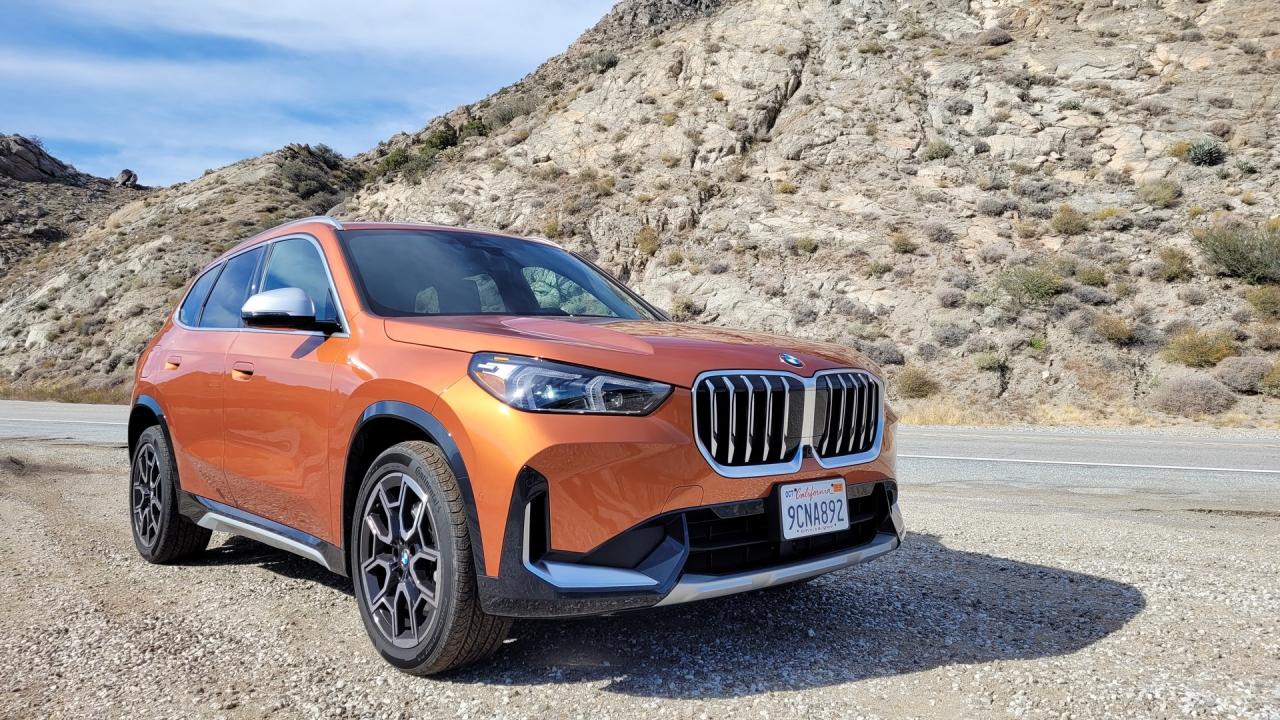
Entry-level luxury crossovers are an interesting proposition as they beg the question of why get a Chevy or Ford, when you can get a BMW or Mercedes for a little extra money.
Unfortunately, cheap could be used to describe more than their price tags as many early examples came up short in the luxury department. Thankfully, premium brands have been doing something about that by transforming their entry-level models into proper luxury vehicles.
That effort continues with the 2023 BMW X1, which is larger, more luxurious, and more powerful than its predecessor. These are welcome changes and ones that make the crossover far more appealing.
The Best-Looking X1 Yet
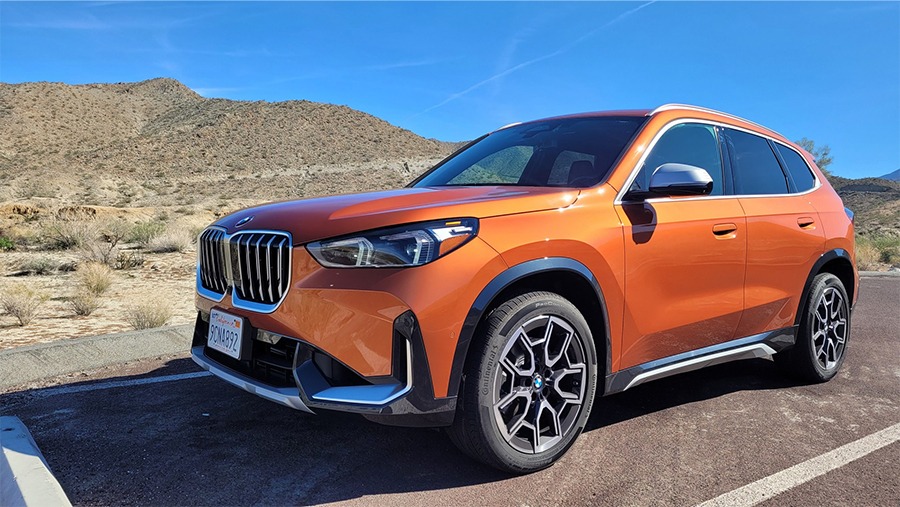
› Model: 2023 BMW X1 xDrive28i
› Starting MSRP: $38,600
› Powertrain: 2.0-liter inline-four turbo, 7-speed DCT
› Output: 241 hp and 295 lb-ft (400Nm) of torque
› Fuel Economy: 25 city / 34 highway / 28 combined mpg
› On Sale: Now
Now in its third-generation, the BMW X1 has undergone a comprehensive redesign that trades curvaceous bodywork for sharp lines and taut surfaces. The changes are immediately apparent as the 2023 model has a nearly vertical front fascia with a more prominent grille that is flanked by slimmer LED headlights.
Moving further back, there’s chiseled wheel arches and standard 18-inch alloy wheels. The model also sports new flush-mounted door handles, satin aluminum trim, and the expected privacy glass. They’re joined by a more muscular rear end, which has L-shaped LED taillights and a sportier rear bumper.
Customers looking for a more upscale appearance can order the $500 xLine package, which adds gloss black cladding that contrasts with additional satin aluminum trim. The model also sports Glacier Silver mirror caps and pearl-effect chrome accents.
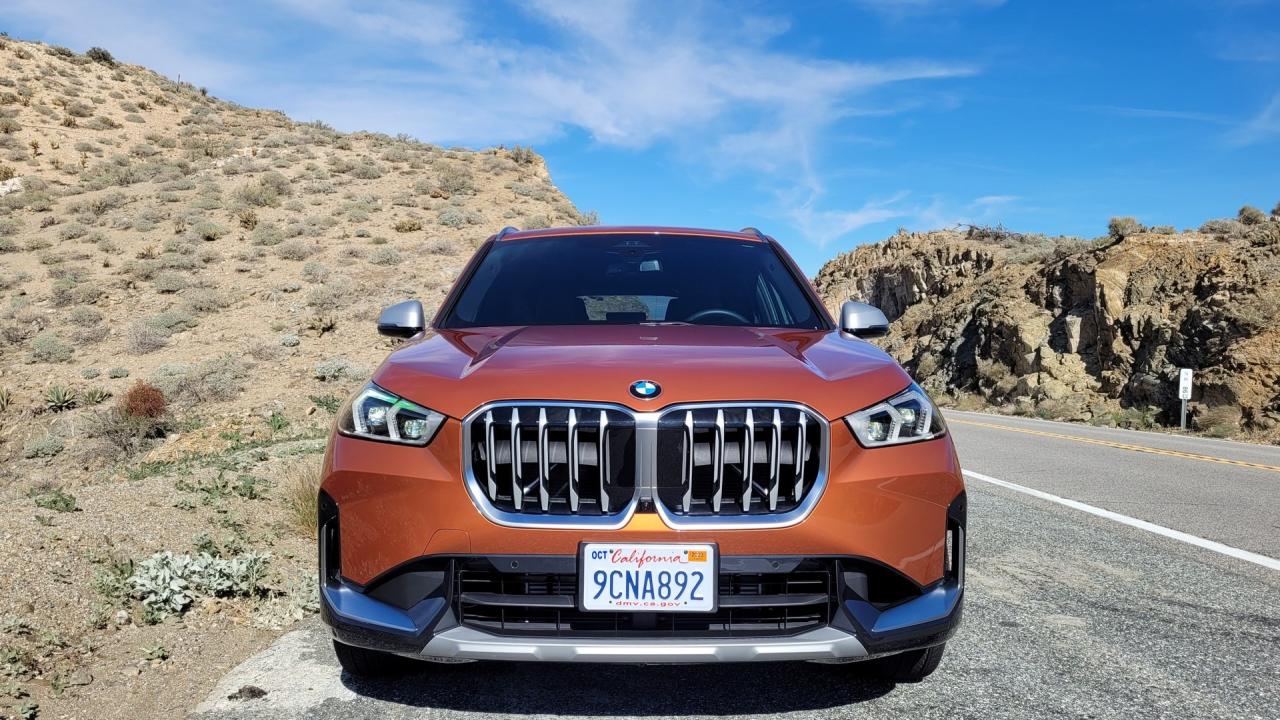
Buyers wanting something sportier can opt for the M Sport Package, which costs $2,300 and adds aggressive bumpers, sportier wheels, a rear diffuser, and Shadowline trim. It also includes more meaningful upgrades such as an Adaptive M suspension that we’ll talk about later.
Like most new vehicles, the X1 has grown in size and now measures 177.2 inches (4,501 mm) long, 72.6 inches (1,844 mm) wide, and 64.6 inches (1,641 mm) tall with a wheelbase that spans 106 inches (2,692 mm). This means the model is almost as large as the original BMW X3, which was launched nearly 20 years ago.
A Minimalist And High-Tech Interior
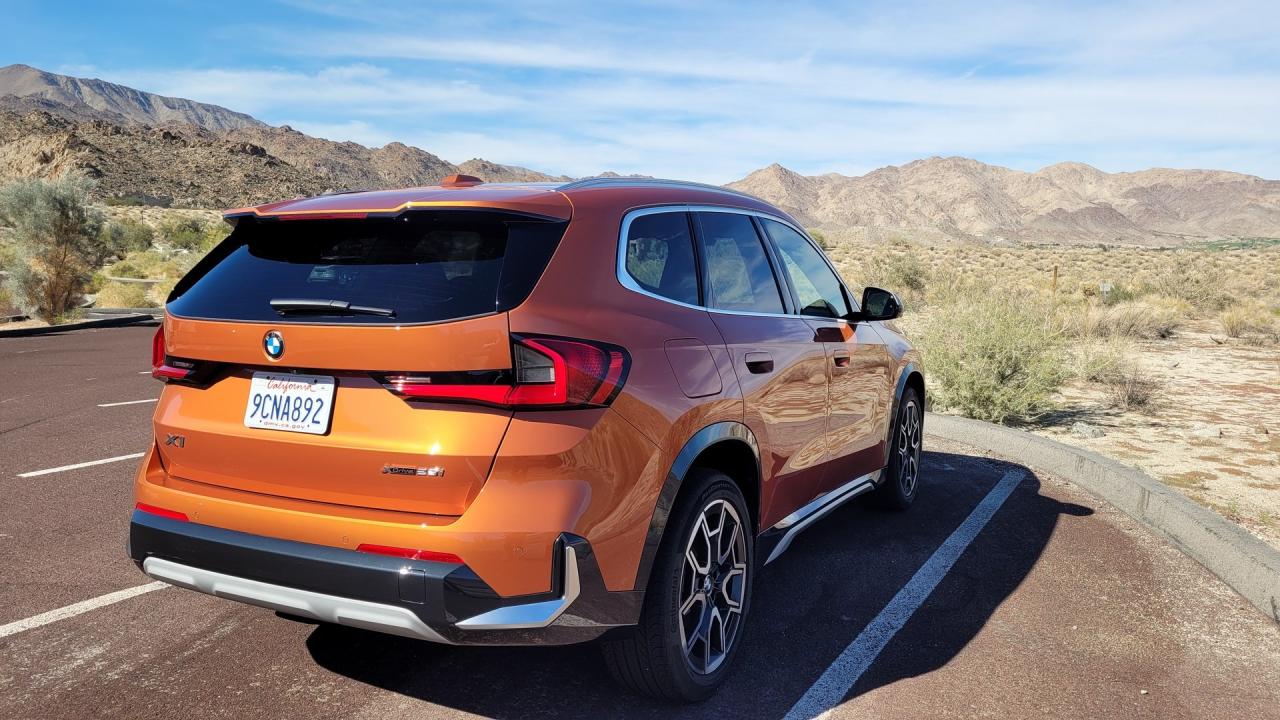
One of the biggest complaints about the X1 has been its interior and this is where BMW focused much of its attention. The dated design of yesteryear has been banished as the model now sports an all-new Curved Display, which consists of a 10.25-inch digital instrument cluster and a 10.7-inch infotainment system.
The displays are crisp and highly legible, although the steering wheel partially blocks access to the infotainment system’s home, media, telephone, and navigation buttons. That’s a minor annoyance and so is the lack of traditional switchgear as most controls are accessed via the infotainment system. The latter runs iDrive 8, which is touch and voiced-focused, and far better than previous iterations of the operating system.
Sticking with the screens, the X1 offers a number of high-tech features including an Augmented View function. It shows a live video feed with navigation information projected on top of it, so drivers know exactly where to turn.
Driven: 2023 Alfa Romeo Tonale Is Big On Style And Space, But The Hybrid Needs Work
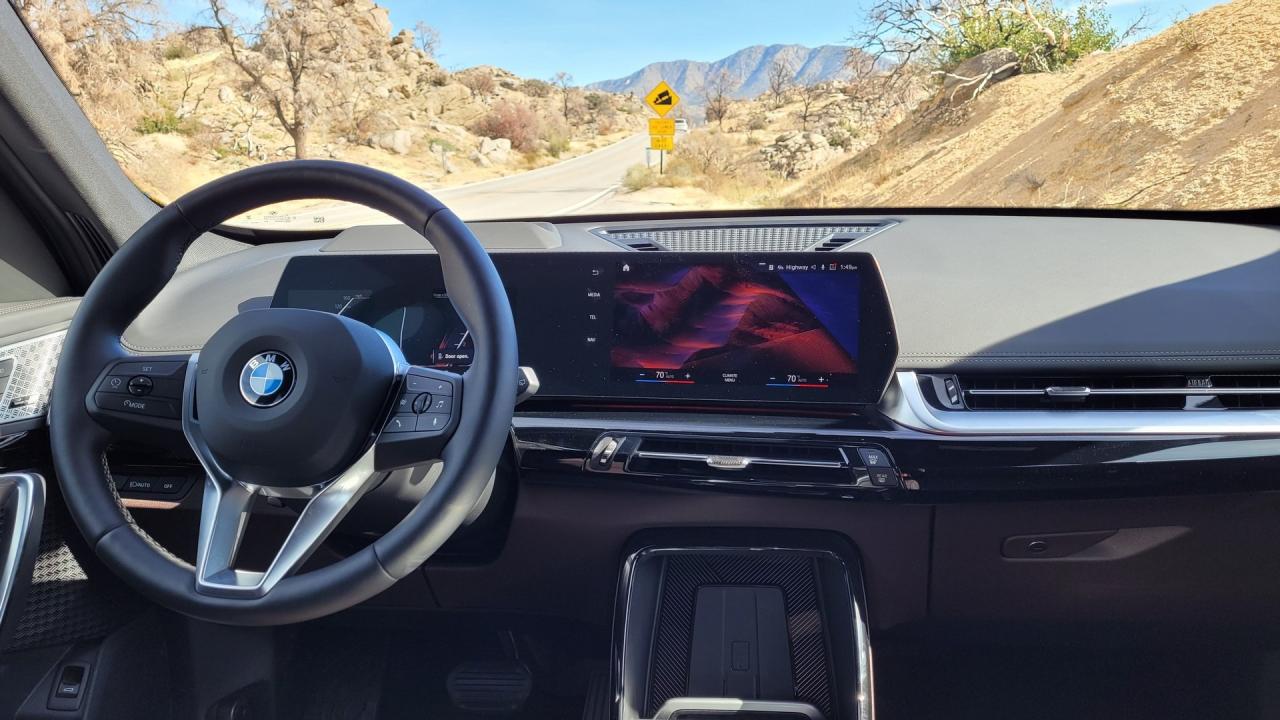
Putting the displays aside, the cabin has an open and airy feel thanks to a shorter and more minimalist dashboard that is wrapped in SensaTec upholestry as part of the xLine package. The feeling is amplified by a ‘floating’ center console that houses a compact shifter, a drive mode selector, and dedicated media controls.
Despite the value pricing, there are high-quality materials throughout the cabin and key touchpoints are nicely padded. While there’s still plenty of hard plastic, most of it is out of sight, out of mind.
Furthermore, the X1 comes nicely equipped with a leather-wrapped steering wheel, ambient lighting, and a dual-zone automatic climate control system. They’re joined by gloss black trim, although wood and aluminum is available at extra cost.
The improvements extend to the seats as there are new front chairs that promise improved comfort over long distances. However, our tester was equipped with the optional sport seats, which cost $400 and are heavily bolstered. They offer tons of support, although they feel a little tight when you first get into them.
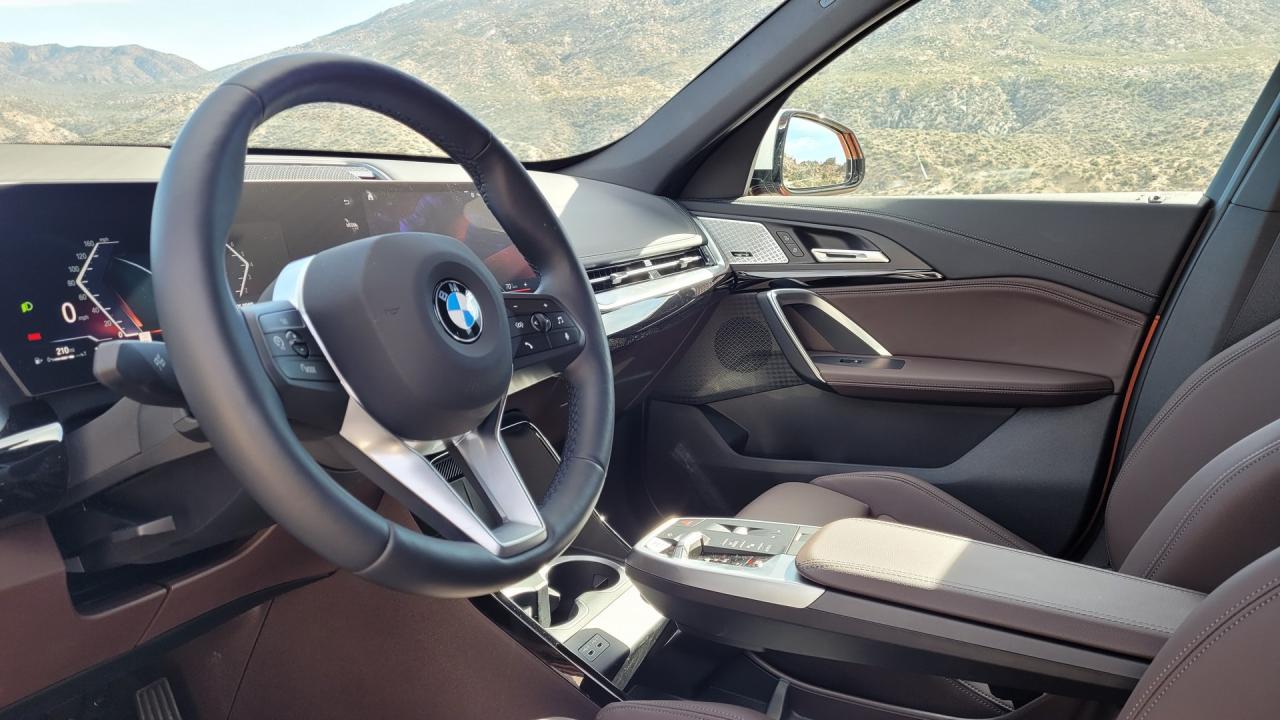
Interestingly, BMW has banished leather as the X1 is available exclusively with perforated SensaTec 2.0 upholstery. This is an odd move, but the material is a pretty convincing form of imitation leather and it’s available in a variety of colors including Mocha and Oyster.
On the topic of seats, the rear passenger compartment is adult-friendly as there’s 37 inches (940 mm) of legroom and more than enough headroom to keep this 6’ 2” reviewer happy. That being said, we were expecting more room given the increase in dimensions.
The power liftgate opens to reveal an accommodating cargo compartment that holds 25.7 cubic feet (728 liters) of luggage. If that’s not enough space, the rear seats can be folded down to increase the capacity to 57.2 cubic feet (1,620 liters), which is more than the Mercedes GLA but less than the GLB.
A Turbocharged Four-Cylinder With 241 HP
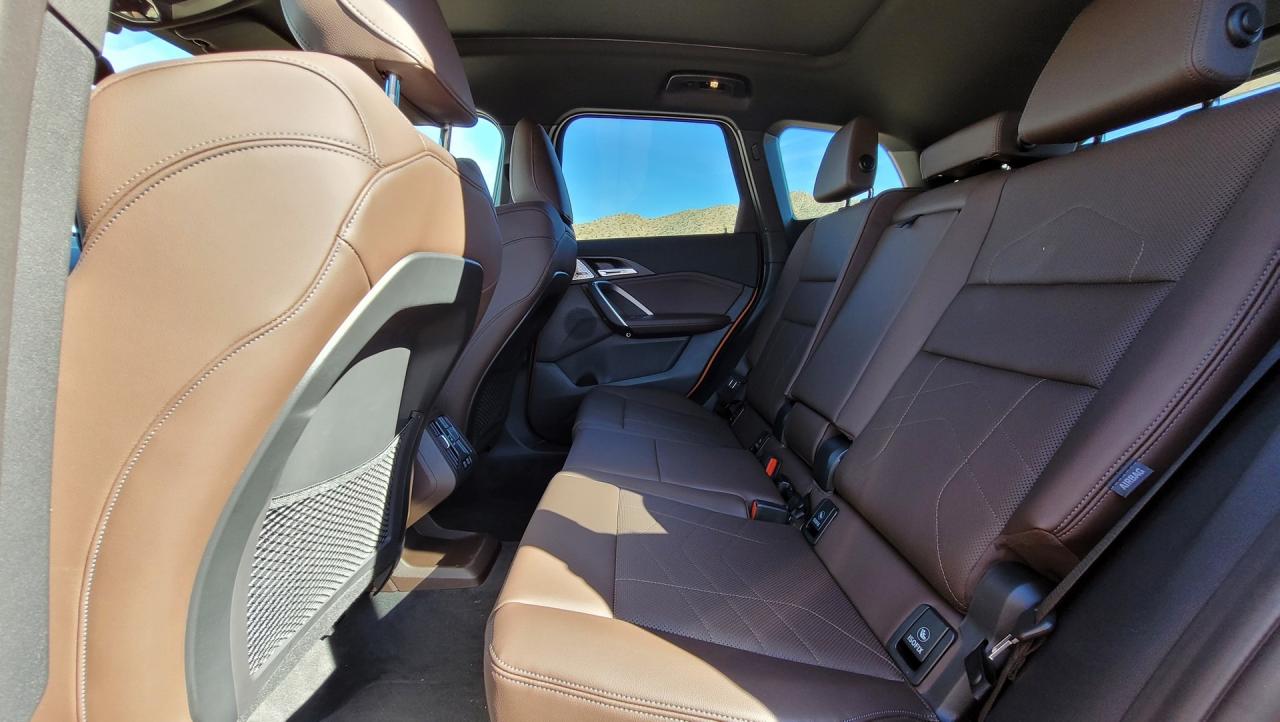
Power is provided by an upgraded turbocharged 2.0-liter four-cylinder engine, which operates on the Miller cycle and features a new dual injection system as well as revised combustion chamber geometry. Thanks to the changes, the output climbs to 241 hp (180 kW / 244 PS) and 295 lb-ft (400 Nm) of torque for a gain of 13 hp (10 kW / 13 PS) and 37 lb-ft (50 Nm).
The engine is connected to a new seven-speed dual-clutch transmission, which replaces the old eight-speed automatic. While it’s down a cog, the DCT is fast, smooth, and refined as gear changes were seamless and perfectly timed.
All-wheel drive is standard for 2023, but the system is primarily focused on powering the front wheels. However, when extra traction is required, the all-wheel drive system responds in fractions of a second to give you four-wheel grip.
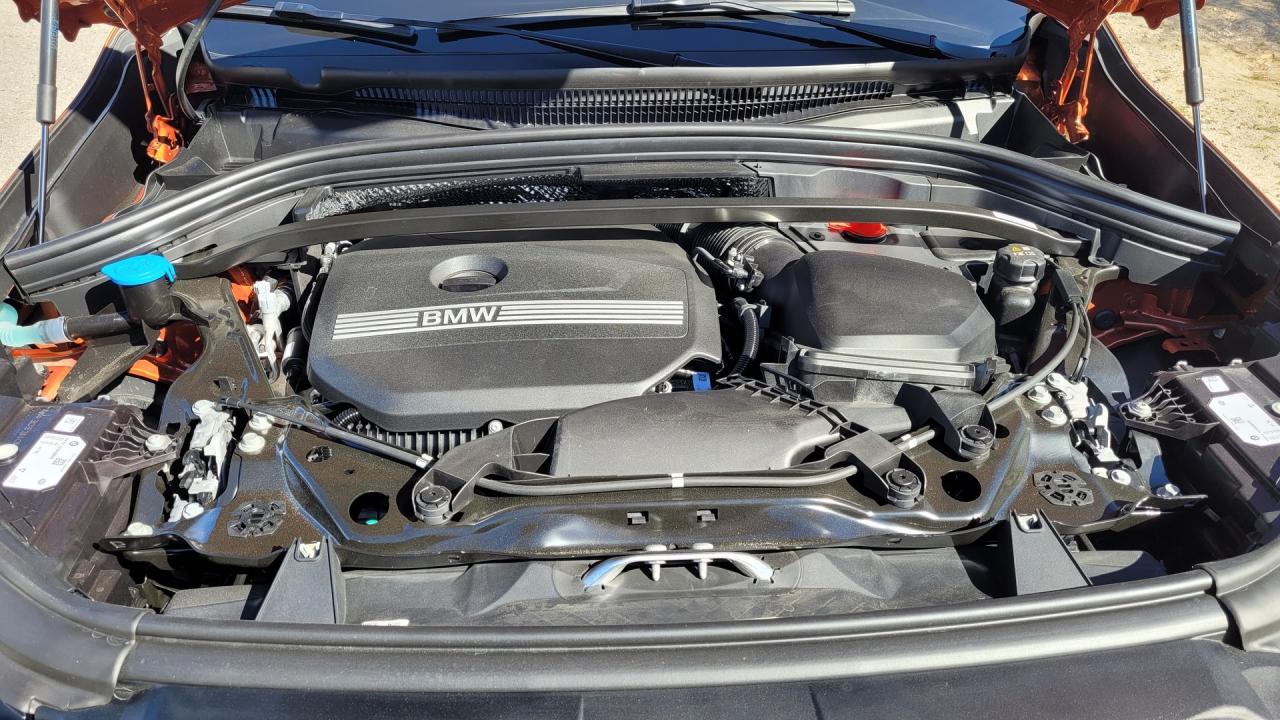
The X1 is reasonably quick off the line and 0-60 mph (0-96 km/h) comes in 6.2 seconds, which is a tenth of a second faster than its predecessor. While that’s a small improvement, it’s worth noting the model is quicker and more powerful than the Audi Q3 45 TFSI quattro and Mercedes GLA 250 4MATIC.
The X1 is also relatively fuel efficient as the crossover carries an EPA rating of 25 mpg city, 34 mpg highway, and 28 mpg combined. That bests key competitors as the Q3 only musters 24 mpg combined, while the GLA splits the difference at 26 mpg combined.
A Smarter And Safer Entry-Level Crossover
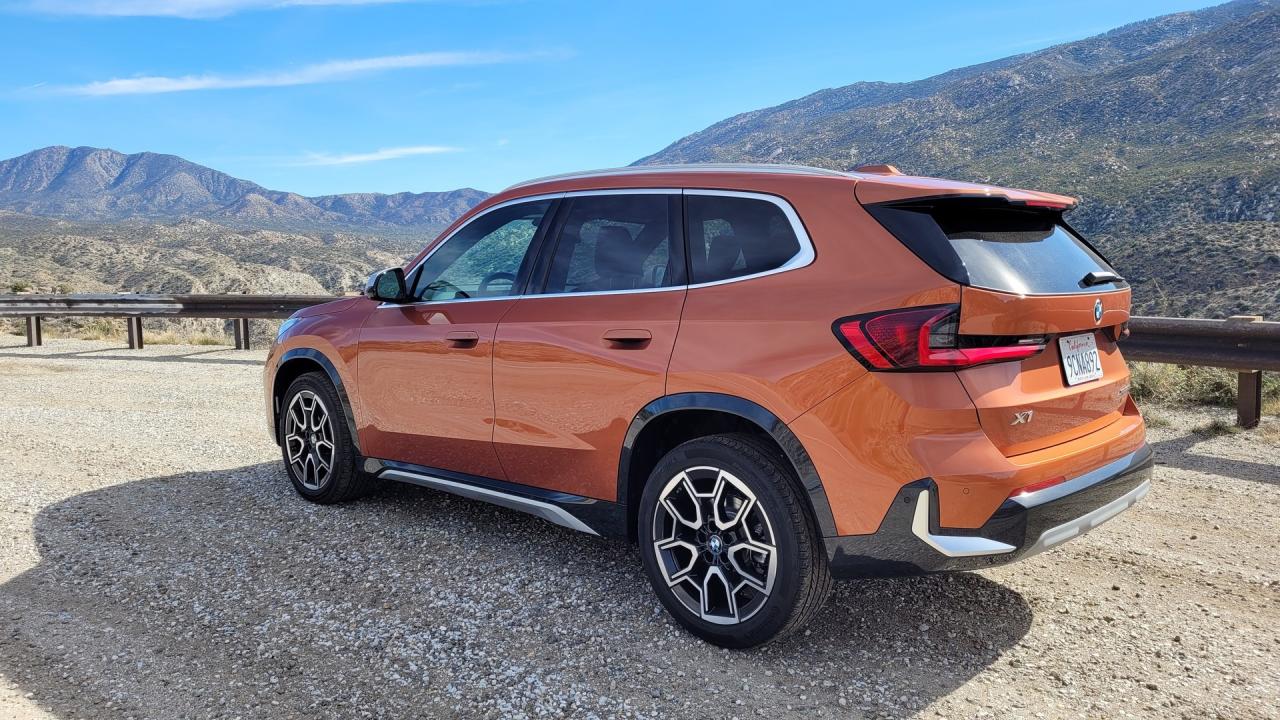
The X1 comes with an assortment of standard driver assistance systems including Frontal Collision Warning with City Collision Mitigation as well as pedestrian and cyclist alert. They’re joined by Park Distance Control and Lane Departure Warning with a new safe exit function.
Customers will also be able to purchase a Driving Assistance Professional Package, which adds Active Cruise Control with Stop & Go, Active Lane Keeping Assistant, Front Cross Traffic Alert, Evasion Aid, and Extended Traffic Jam Assistant. The latter allows for hands-free driving at speeds up to 40 mph (64 km/h) on limited access highways.
Other systems include Parking Assistant Plus, a 360-degree camera system, a Remote Theft Recorder, and a Crash Recorder that can automatically record up to 60 seconds of footage in the event of an accident. The crossover also offers BMW Digital Key Plus, which enables Apple iPhone owners to automatically lock and unlock the vehicle without having to take their phone out of their pocket or purse.
It’s also worth mentioning the X1 is now available with a trailer hitch from the factory. That might not sound overly exciting, but it’s a first for the model and it enables the crossover to tow up to 3,500 lbs (1,588 kg)
